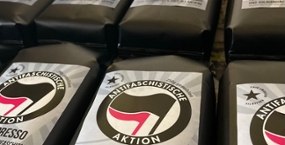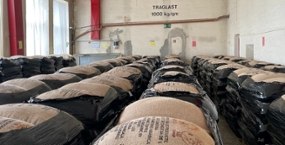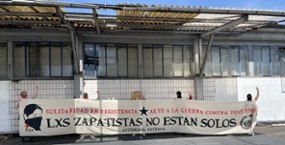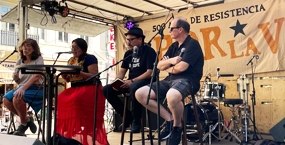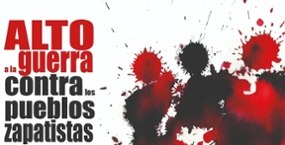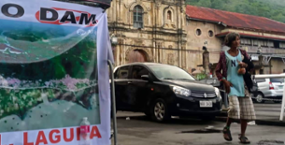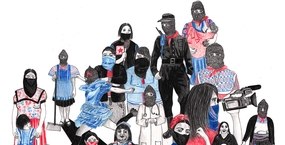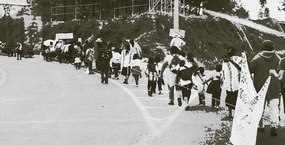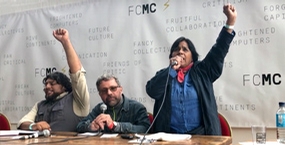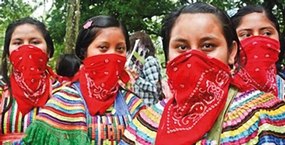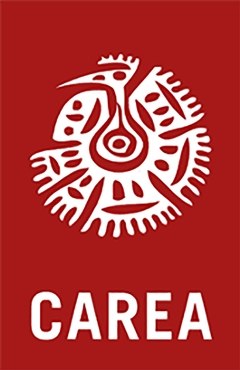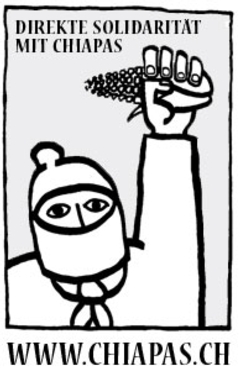How do we take back control?
Taking our anger to the streets is the most direct way to be heard. The Seattle protest became legendary for its size and its success in disrupting the corrupt WTO meetings. But when the state inevitably crushes us down, when the police beats us and shoots at us, arrests us and sanitises the streets of our traces; when the protest comes to an end, what do we go back home to?
Cafe Libertad is an organisation that works for change in the everyday – that builds a constant and viable alternative to dirty capitalist business and that allows us to resist this global exploitative system. But how does it do this exactly?
What's wrong with current world trade?
To understand what makes Cafe Libertad different, we must first understand what is wrong with mainstream world trade. People often talk about inequalities and bad corporate behaviour, but what do these actually mean?
Capitalism is built on competition for profit: the only true obligation a corporation has is to make increasing financial gains for its owners. In a competitive game where profits can be used to buy better machinery and more advertising, those who are doing well can do even better, and those who lose out are stuck at the bottom. If you ever played car racing video games in the 90ies, these often worked like this: if you won a car race you got a reward in virtual cash, which meant you could buy a better engine for your car before the next race. You'd then be more likely to win again, getting more money to spend on an even better engine, or tyres, etc. This is exactly how capitalism works: in a competition for market share, the most ruthless player wins the most money, and is best placed to carry on winning more and more.
The capitalist corporation is of course not democratically organised – if Walmart or Metro were countries, they would be authoritarian dictatorships. All decisions are made by managers and shareholders, and if the lower-level employees don't like the conditions the bosses offer them, so the capitalist theory goes, they can go and find work elsewhere. Unfortunately, in practice, this decision is not so easy for workers, who are stressing around trying to make their life work out financially and emotionally.
Nationally in Germany, nearly 70% of all food is bought from one of the six largest supermarket companies (Metro, Rewe, Edeka, Aldi, Schwarz (owner of Lidl), Tengelmann (owner of Plus and Kaiser's)). The overwhelming size of these companies means that they can bully their suppliers into selling their produce at unrealistically low prices – even at a loss sometimes – since most farmers would rather do a bad deal to maintain a good relationship with these enormous buyers, than to say no and be put on the supermarkets' black lists. The workers who farm, pick, sort, pack and ship food on the global market are therefore paid dangerously little for their work. They are pressured into working long hours for little pay, often not enough to cover their rent, food and education for their children. Statistically, this is how most people live in the world – our comfortable European lifestyles are abnormal globally speaking, and are largely financed by these bullying tactics, whether through business, international legislation, or war.
The World Trade Organisation (WTO) is the official platform where all main global trade negotiations are supposed to take place. Countries meet regularly at meetings organised by the WTO to discuss what rules, taxes, labelling laws, etc, should be allowed. If any member state of the WTO thinks another member state breaks one of these agreements, they can sue it under the WTO's court-like facility, which can give out financial penalty sentences. Since the mid 2000s, WTO negotiations have gone badly and countries have not been able to agree on some key issues, which has meant that the WTOs status as the global authority on trade now is confused. In many cases, countries like the EU and USA are going ahead and making new 'bilateral' trading agreements with individual countries, which are not officially okayed by the rest of the world.
In this confused space, large wealthy countries are able to use their power to pressurise smaller and less economically advanced countries into accepting trade agreements that are not favourable to them. For example, while the US and most European countries gave large government grants to emerging industries in the 17th and 18th centuries before they got as advanced and rich as they are now, and put taxes on foreign imports to encourage people to buy local, developing countries are today forbidden by the developed countries from doing either of these things, on the grounds that government support of local businesses isn't 'fair'.
The WTO is, according to the world's rich, supposed to be a fair space for countries to negotiate trade rules – but as protesters at the 1999 Seattle ministerial meeting pointed out, this is a very old and boring joke. The WTO is an extremely corrupt organisation, with a weak democratic structure based on a deranged version of 'consensus' decision making (i.e. with less say for poorer members), and with practical meeting arrangements that make it nearly impossible for developing countries, with their fewer, less elite-trained and less networked government staff, to attend meetings at all. With a situation that is unequal and wrong on so many levels, it is difficult to know what to begin shouting through that megaphone on a street like one in Seattle in November 1999.
Cafe Libertad as alternative
Perhaps most famously, Cafe Libertad is Europe's first and largest distributor of Zapatista coffee, but it also helps distribute other goods, such as Cuban rum, sugar from Ecuador and cocoa from Bolivia. Cafe Libertad is a collective of workers, which means that the people who run the daily grind of the company also take part in all the decision-making. This means that the traditional capitalist distinction between the workers of a company (who, as Marx pointed out, sell their labour power to employers for a price that is as low as possible since they are competing with other labourers to get the job) and the owners of the company (who take all the profit) is erased. The employers and employees become the same people.
This democratic ownership and decision-making is not only true for Cafe Libertad itself, but for all the organisations it buys from and deals with. This chain of democratic decision-making is strikingly different from the hostile and competitive market logic of mainstream capitalist business. Of course this does not mean that decision-making is problem-free, and sometimes the traditional hierarchical patterns we have all been taught to play along with since birth make unwelcome and unintended appearances. But the journey towards equality and democracy goes on – unlike in dictatorial supermarkets.
Since Cafe Libertad is not motivated by any profit, it has no need to pressure its suppliers to deliver unrealistically low prices. Cafe Libertad pays decent prices for all its products, which means workers both here in Germany and in the producer co-ops abroad get enough money to live on, not just to survive, but to build confidence. When you buy a packet of Zapatista coffee, the Zapatistas receive a price that is high enough to keep their community moving. Unlike in the 'fair trade' activities of patronising development charities, the Zapatistas have their own democratic structures to decide what they money is spent on – Cafe Libertad's payment for Zapatista coffee is not 'charity', but a transaction of mutual respect and co-operation.
Apart from the good price Zapatistas receive for their coffee, about three additional percent of the total price of a coffee bag goes to a sponsorship premium to support political struggles here in Europe as well as in Mexico. This means that political work by radical activist groups, whether public information, education, protest, direct action, lobbying, etc, is valued as real work, and is given money to sustain it. In other words, while Cafe Libertad mainly is a progressive force in itself by providing an alternative to exploitative capitalist business, it also supports progressive forces through fundraising for other forms of activism.
By creating an alternative trading stream, which refuses to take part in mainstream business networks or behaviours, Cafe Libertad has the luxury of questioning capitalism in a very deep and fundamental way. A trading collective does not have to phrase its values and opinions in short and snappy slogans, and it is not swept away by batons and tear-gas when the riot police is called in. As a trading collective Cafe Libertad can create real and tangible spaces that are built on mutual gain instead of profit. Activists in the collective can deal with questions around equality and democracy in a deeper and more permanent way: how can we make a living together? How does mutual gain work in practice? How do we build solidarity with radical activists on the other side of the world? And invited into this process is not only Cafe Libertad staff or Zapatista farmers, but anyone who wants to volunteer, help out, or learn more.
